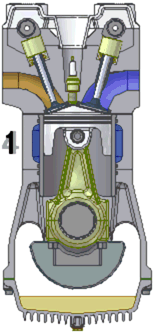


 |
 |
 |
|
|
|
|||||||
| XT660Z T�n�r� Tech Section Tyres, Mods, Luggage & Long distance preparation |
 |
|
|
Thread Tools | Display Modes |
|
#
1
|
|||
|
|||
|
New Tenere, but possible problem...
Well, my new Tenere has arrived and, after a successful oil change which went spectacularly badly (i.e. oil everwhere), it's a lot of fun and all in all I love it, buying it was the best decision I've made for a long time.
However...it does seem to be making a slight popping round, though only when it's decelerating. I wouldn't call it a backfire as such, because it's really nothing like that loud, but it does seem to 'pop'. Since I've not ridden this type of bike before I'm not sure whether this is ok or something's wrong... Any help would be appreciated. 
Alex |
|
#
2
|
|||
|
|||
|
most of these bikes do this, some more than others. I had the R before my ten and both of them do it. relax it's normal

|
|
#
3
|
||||
|
||||
|
Lovely sound ,

__________________

OFFICIAL CRASH TEST DUMMY |
|
#
4
|
|||
|
|||
|
__________________
I support

|
|
#
5
|
|||
|
|||
|
Heh, thank god - I'll admit to being just ever so slightly worried there...

|
|
#
6
|
|||
|
|||
|
Alex,
Congrats on the new bike. As you have already changed the oil on your new bike I assume you doing the 'thrash the ar$e off it and change the oil after 20 miles' routine. I'd be interested to know how it goes if you could keep us informed? Thanks, Nick. |
|
#
7
|
||||
|
||||
|
Write 60 lines on the chalk board with the following:
My bike is a single cylinder, My bike is a single cylinder, My bike is a single cylinder, My bike is a single cylinder, My bike is a single cylinder, My bike is a single cylinder, My bike is a single cylinder, after a while you will stop wondering why it backfires on closed throttle. 

|
|
#
8
|
|||
|
|||
|
Heh, yah, getting used to the single cylinder is taking a bit of time, I'll give you that.

I'm an inquisitive fellow and all that, so if anyone can tell me why it does that I'd appreciate it. Nick - After some consideration, I didn't go for the thrashing technique and just followed the owners manual but virtually everyone had said that an oil change was a good idea, so that's why I did it. There were some metal specks in the oil, though very small. You'd probably call it a fine dust more than anything else. I've been impressed with the pick-up when accelerating (though after a GT550 that may not be so hard, heh) and it's clipped along at 70mph quite happily, still under the 4.5k rpm that they set for the first 600 miles (1,000km). |
|
#
9
|
||||
|
||||
|
Ok I can try to explain it but please bear in mind that unlike Kev I am not that mechanical minded and I don't know how to properly explain all the terms correctly ok?
So here goes my understanding of why a single cylinder backfires: if you imagine a twin cylinder bike has two fuel burning chambers i.e. the vessel where the pistons go up and down. When a piston reaches the top it pushes the fuel towards the spark plug and at that precise moment the spark ignites the fuel and turns it into exhaust gases and these are expelled out through the headers and the exhausts. A twin cylinder engine will always have one piston up and one down therefore that burning process reoccurs at regular intervals efficiently burning all the fuel all the times even on closed throttle. A 4 cylinder bike does exactly the same, at any time it will have 2 pistons down and 2 pistons up again burning its fuel efficiently. Now a single cylinder only burns the fuel once at every cycle when the piston is up, therefore on it's decompression stage with closed throttle the amount of unburnt gases will cause that popping sound. 
Here are a few facts I've gathered from various sources: A single cylinder engine is the most basic configuration of an internal combustion engine. It is often used for motorcycles (a large four-stroke single is often colloquially known as a thumper) but has many uses in portable tools and has been used in cars and tractors. Pros and Cons Single cylinder engines are simple and compact and will normally deliver more power within a given envelope. They are prone to vibration, unless this is controlled with balance shafts. Rotating mass tends to be high, restricting sharp changes of speed and acceleration. Cooling is simpler than with multiple cylinders, potentially saving weight. Compared to multi-cylinder engines, single cylinder engines have several advantages, primarily their simple and economical construction. Balance shafts and counterweights on the crankshaft must be used to balance the weight of reciprocating parts, and can be expensive and complicated due to the collective mass of multiple cylinders. The biggest downside of the single cylinder engine is that it develops considerably lower power to weight ratios than a multi-cylinder of the same type. Ok so... I hope this help, remember I am not a mechanic and perhaps Kev can either explain better or thrash my whole theory 
|
| Sponsored Links |
|
#
10
|
||||
|
||||
|
Thats a very pretty picture...
__________________
We are now retired....so....... lots of this  and this and this
 and no more of this and no more of this

|
 |
| Thread Tools | |
| Display Modes | |
|
|